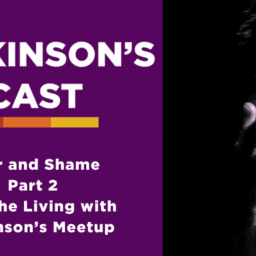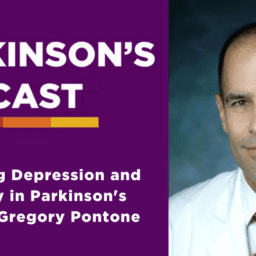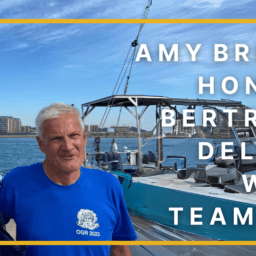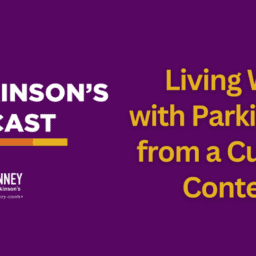When it comes to addressing the needs of a Parkinson’s community, we often talk about an urban/rural divide. It is assumed that the barriers and health disparities that exist for those living in large cities and rural communities are vastly different, but some experts now are suggesting this may not really be the case.
In this episode, a panel of Parkinson’s organization leaders serving people across the US discussed:
- Common issues that exist within urban communities and rural communities alike
- Common assumptions and misunderstandings about rural and urban communities
- What policy makers and other decision makers miss most often when it comes to addressing the unique needs of our communities
- What leaders and Parkinson’s advocates can do TODAY to help address health disparities like these that may exist in their own communities
To download the transcript, click here.
Note: This is not a flawless word-for-word transcript, but it’s close.
Show Notes
- People with Parkinson’s in rural areas may have a hard time accessing the resources and medical care that is more readily available in urban settings. Organizations like Parkinson’s Nebraska, led by Executive Director Amber Winter, seek to bridge this gap by connecting with local leaders in these rural communities and providing them with resources that they can then spread to their communities
- One way members of rural communities can increase assess to resources is by reaching out larger urban organizations and sharing your unique needs. This connects you to a larger network that can work with you to provide resources specific your community’s needs
- Even in areas rich with resources, there are communities — a high percentage of which are communities of color — that may not have access to available resources because of a lack of education and a need to prioritize more prevalent issues such as food and housing. Wendy Lewis, CEO of The Parkinson’s Council, emphasizes the importance of continuing to provide appropriate outreach and education to healthcare workers and these communities, as well as to continue to address the systemic issues leading to these inequities
- People with Parkinson’s living in rural areas may struggle to have access to basic care such as a primary physician who is able to diagnose, let alone treat, Parkinson’s. Holly Chaimov, executive director of Parkinson’s Resources of Oregon, stresses the continued importance of providing and creating programming that trains local doctors in rural areas on the symptoms and treatment of Parkinson’s
- The opportunities for telemedicine have grown exponentially in light of the COVID pandemic, allowing people who live hours away from appropriate medical care to be seen virtually. Kathleen Crist, executive director of Houston Area Parkinson Society, speaks specifically of how this pandemic has forced Texas legislature to be open to the idea of telemedicine, bypassing many restrictions and excuses that were in place prior to the pandemic
- Racial differences in Parkinson’s treatment and mortality exist. When it comes to addressing these disparities, the concept of trust comes up in nearly every conversation. This issue will be further discussed at our upcoming Telemedicine Webinar: Understanding the Role of Trust
additional resources
How Telemedicine Can Help You Live Well with Parkinson’s
Ways to Give Back to your Community
When Connecting Online Isn’t Enough
meet the panelists
Wendy R. Lewis, CEO, The Parkinson Council (Philadelphia, PA)

A native of Louisville, Kentucky, Wendy is a graduate from the University of Louisville with a degree in Political Science. After moving to Washington, DC, Wendy worked as Office Administrator in the congressional office of the late U.S. House Majority Whip, William H. Gray, III (2nd-PA).
Wendy returned to the nonprofit sector and moved to Seattle to work on issues that empower young adults to make responsible choices, including harm reduction and prevention programs. While in Seattle, Wendy earned a Masters in Nonprofit Leadership from Seattle University, one of the first in the country to offer a nonprofit leadership program.
Wendy joined The Parkinson Council in 2010. Since her tenure, The Parkinson Council has re-investment over $5 million back into the Greater Philadelphia region for research, comprehensive care, and quality of life initiatives.
Amber Winter, Executive Director, Parkinson’s Nebraska (Omaha, NE)
 Amber graduated summa cum laude from Bellevue University in 2019 with a bachelor’s degree in Nonprofit Management. As a Nebraska native, she is passionate about building relationships and using her skills to strengthen the statewide Parkinson’s community. Under her leadership, Parkinson’s Nebraska has increased access to services and expanded its reach to communities across the state. Amber is also an active member of her local community. When she is not spending time with her family, she enjoys volunteering and serving as the fundraising chair on the board of the Young Nonprofit Professionals Network of Greater Omaha.
Amber graduated summa cum laude from Bellevue University in 2019 with a bachelor’s degree in Nonprofit Management. As a Nebraska native, she is passionate about building relationships and using her skills to strengthen the statewide Parkinson’s community. Under her leadership, Parkinson’s Nebraska has increased access to services and expanded its reach to communities across the state. Amber is also an active member of her local community. When she is not spending time with her family, she enjoys volunteering and serving as the fundraising chair on the board of the Young Nonprofit Professionals Network of Greater Omaha.
Holly Chaimov, Executive Director, Parkinson’s Resources of Oregon (Beaverton, OR)
 Holly joined Parkinson’s Resources of Oregon in August 1999. She has a BS in Psychology, a minor in Gerontology, and an MBA. In her tenure with Parkinson’s Resources, Holly has played a key role in the positive growth and development of services for the Parkinson’s community in Oregon and SW Washington. This focus has resulted in a committed community of supporters served out of offices in Bend, Eugene, and Beaverton. Holly is also a member of the Unified Parkinson’s Advocacy Council, advancing policies that support people with Parkinson’s and their loved ones.
Holly joined Parkinson’s Resources of Oregon in August 1999. She has a BS in Psychology, a minor in Gerontology, and an MBA. In her tenure with Parkinson’s Resources, Holly has played a key role in the positive growth and development of services for the Parkinson’s community in Oregon and SW Washington. This focus has resulted in a committed community of supporters served out of offices in Bend, Eugene, and Beaverton. Holly is also a member of the Unified Parkinson’s Advocacy Council, advancing policies that support people with Parkinson’s and their loved ones.
Kathleen Crist, LMSW, Executive Director, Houston Area Parkinson Society (Houston, TX)
 Kathleen earned her undergraduate degree in social work from the University of Iowa and her master’s in social work from the University of Houston. She joined HAPS in 2002 as the Director of Social Services and Program Development before transitioning into the role of executive director in 2018. During her time at HAPS, Kathleen has been responsible for creating and implementing many service initiatives, support groups, and educational programs. Kathleen continues to facilitate support groups, the local PD SELF (Parkinson’s Disease Self-Efficacy Learning Forum), and focuses her practice with the newly diagnosed population. Kathleen is a member of The Michael J. Fox Foundation for Parkinson’s Research’s Unified Parkinson’s Advocacy Council (UPAC), is co-chair of the Alliance of Independent Regional Parkinson’s Organizations (AIRPO), and has served as the Director of the National PD SELF (Parkinson’s Disease Self-Efficacy Learning Forum) Program. She currently serves on several committees with local movement disorder clinics and is a member of the Houston Methodist Neurological Institute National Council.
Kathleen earned her undergraduate degree in social work from the University of Iowa and her master’s in social work from the University of Houston. She joined HAPS in 2002 as the Director of Social Services and Program Development before transitioning into the role of executive director in 2018. During her time at HAPS, Kathleen has been responsible for creating and implementing many service initiatives, support groups, and educational programs. Kathleen continues to facilitate support groups, the local PD SELF (Parkinson’s Disease Self-Efficacy Learning Forum), and focuses her practice with the newly diagnosed population. Kathleen is a member of The Michael J. Fox Foundation for Parkinson’s Research’s Unified Parkinson’s Advocacy Council (UPAC), is co-chair of the Alliance of Independent Regional Parkinson’s Organizations (AIRPO), and has served as the Director of the National PD SELF (Parkinson’s Disease Self-Efficacy Learning Forum) Program. She currently serves on several committees with local movement disorder clinics and is a member of the Houston Methodist Neurological Institute National Council.
Moderator
 Dr. Soania Mathur, MD
Dr. Soania Mathur, MD
Dr. Soania Mathur is a former family physician living outside of Toronto, Ontario who resigned from her clinical practice twelve years following her diagnosis of Young Onset Parkinson’s Disease at age 27. Now she is a dedicated speaker, writer, educator, Parkinson’s advocate, and a valued member of our Board of Directors.
This webinar was presented in partnership with:

Thanks for Listening!
To share your thoughts:
- Leave a note in the comment section below.
- Ask a question by emailing us here.
- Share this show on Facebook.
To help out the show:
- Leave an honest review on iTunes. Your ratings and reviews really help, and we read each one.
- Subscribe on iTunes.
Listen & Subscribe
Apple Podcasts | Stitcher
*The Second Season of the Parkinson’s Podcast is made possible through generous support in honor of Dr. Margaret Hilgartner.

















